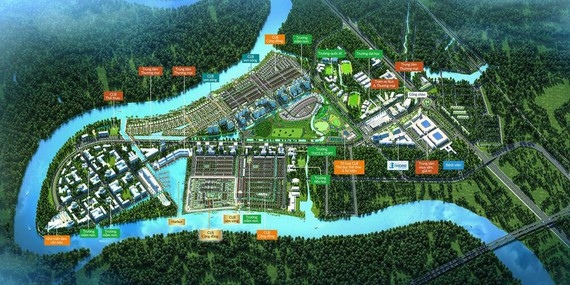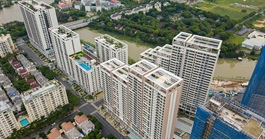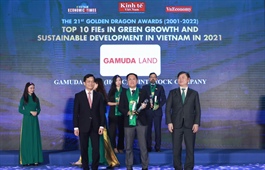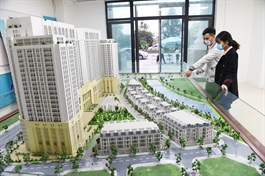IFC Invests in Green Housing in Vietnam
IFC Invests in Green Housing in Vietnam
IFC is supporting Nam Long Investment Corporation to develop sustainable green housing for workers in a satellite city near the economic hub of Ho Chi Minh City. IFC’s investment is expected to create 1,500 jobs, with the satellite township to house over 50,000 people.
Illustrative photo. |
IFC has subscribed to a VND 1 trillion (about $44 million) bond to be issued by Nam Long Investment Corporation, a leading housing developer in Vietnam. The proceeds will be used by Nam Long for the second phase of the Waterpoint housing project, part of a broader integrated township development which will feature green public spaces, sporting, school, university, and medical facilities, as well as transport, retail and offices.
“IFC’s investment will help boost our capacity in providing more housing units for the growing number of middle-income residents in Vietnam. Moreover, since over 5,000 apartments of the Waterpoint phase II project will be developed in line with IFC’s green building standards EDGE — Excellence in Design for Greater Efficiencies — it will address the country’s acute housing shortage in a sustainable manner,” said Ngoc Xuan Tran, Chief Executive Officer at Nam Long Investment Corporation.
An innovation of IFC, EDGE will help the project reduce consumption of energy, water, and embodied energy in materials by at least 20 percent compared with similar housing projects. This will help the building sector lower its greenhouse-gas (GHG) emissions, which accounts for about 28 percent of the country’s total GHG emissions annually.
“Vietnam has set ambitious twin goals to become a high-income country by 2045 and achieve carbon neutral status by 2050, so financing for a development of this kind delivers multiple benefits,” said Alfonso Garcia Mora, IFC Regional Vice President for Asia and the Pacific, who is visiting Vietnam this week. “Environmentally sustainable housing in townships which connect people to jobs in major commercial hubs is a win on the climate front and will increase the supply of quality housing for the country’s growing middle class.”
Vietnam’s fast-paced economic growth has led to rapid urbanization with more than one third of its 96.5 million people living and working in urban areas. Moving forward, Vietnam faces a substantial housing deficit—over 370,000 housing units annually—especially in industrial zones and satellite cities surrounding Hanoi and Ho Chi Minh city, the country’s economic hubs. With domestic manufacturing now re-opening, continued capital investment, which is critical to Vietnam’s economic recovery, is needed and likely to primarily be channeled to those commercial hubs.”





















